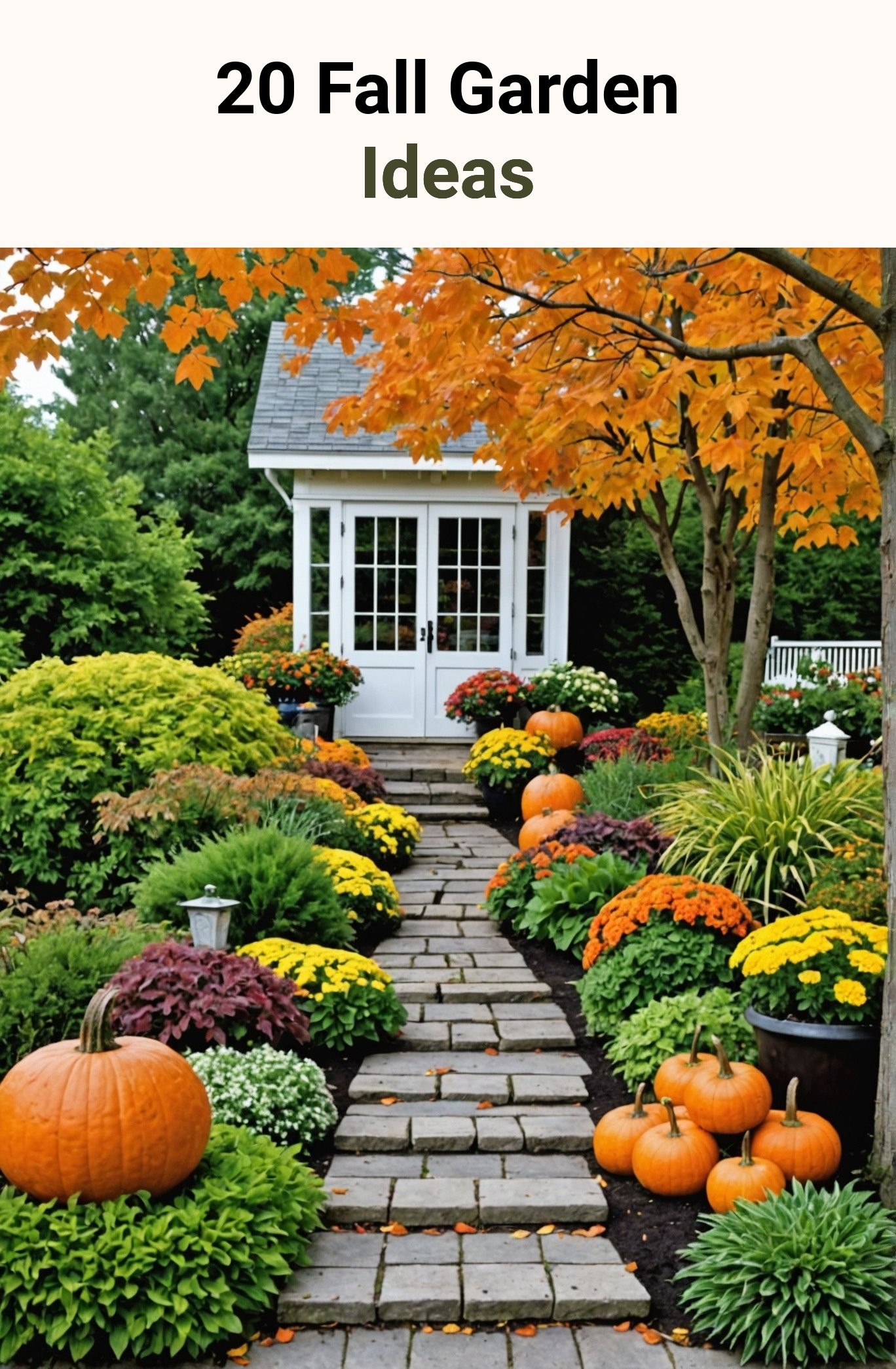Beautiful Plants For Your Interior
Beautiful Plants For Your Interior
Fall is a fantastic time to transform your garden into a stunning seasonal retreat.
From planting vibrant vegetables and seasonal flowers to creating cozy outdoor spaces, there are so many creative ideas to explore.
Let’s dive into 20 fall garden projects that will add warmth and charm to your outdoor space as the leaves start to change.
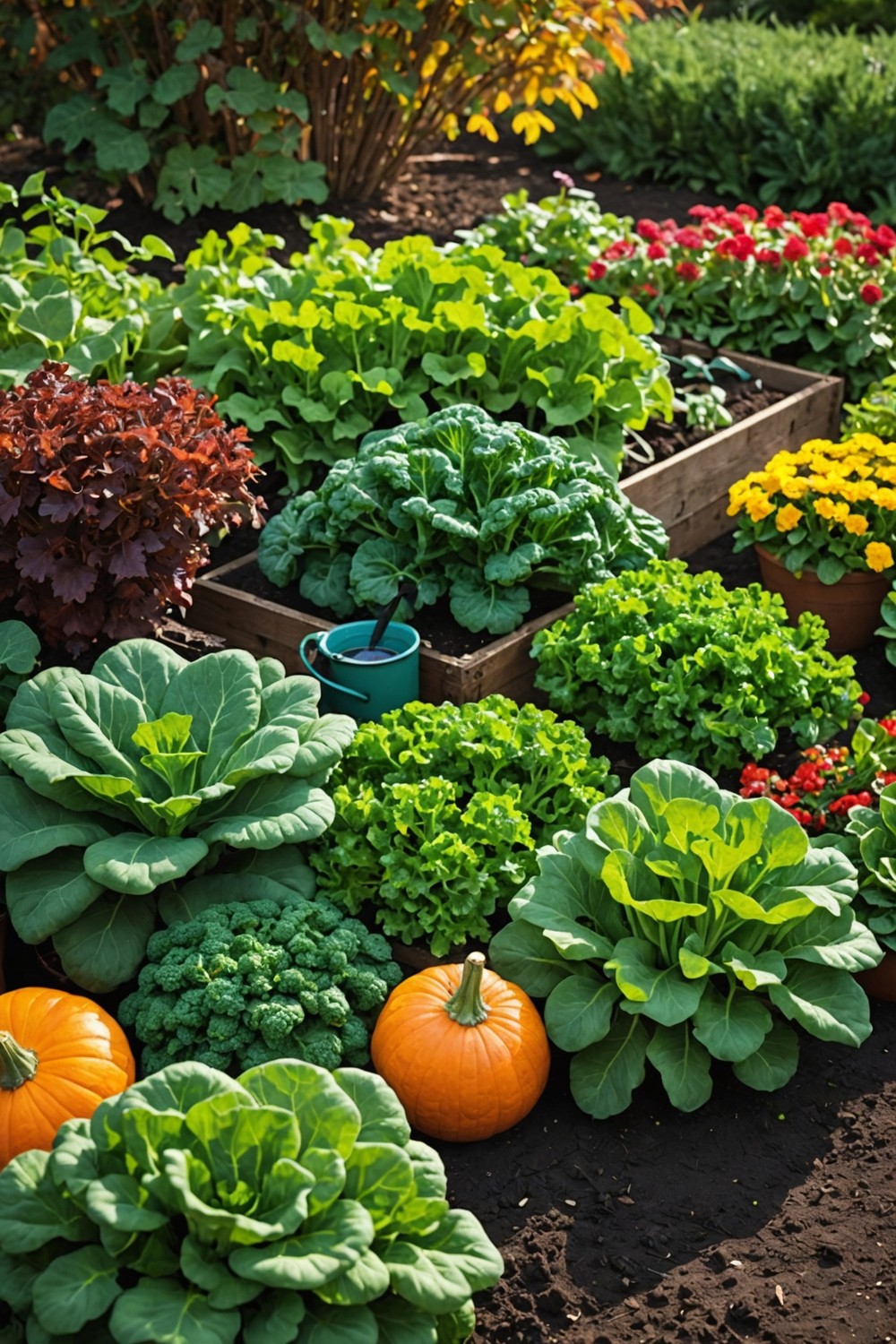
Planting a fall vegetable garden can be incredibly rewarding.
As temperatures cool, many vegetables thrive, which gives you a second chance to grow fresh produce.
Focus on planting cool-season crops like kale, spinach, and broccoli, as they become sweeter after a frost.
Choose a sunny spot in your garden, prepare the soil by adding organic matter, and plant seeds or seedlings according to their ideal spacing.
Regular watering and mulching will help retain moisture as temperatures drop.
Harvesting fresh vegetables into the winter months can be a delightful reward for your efforts!
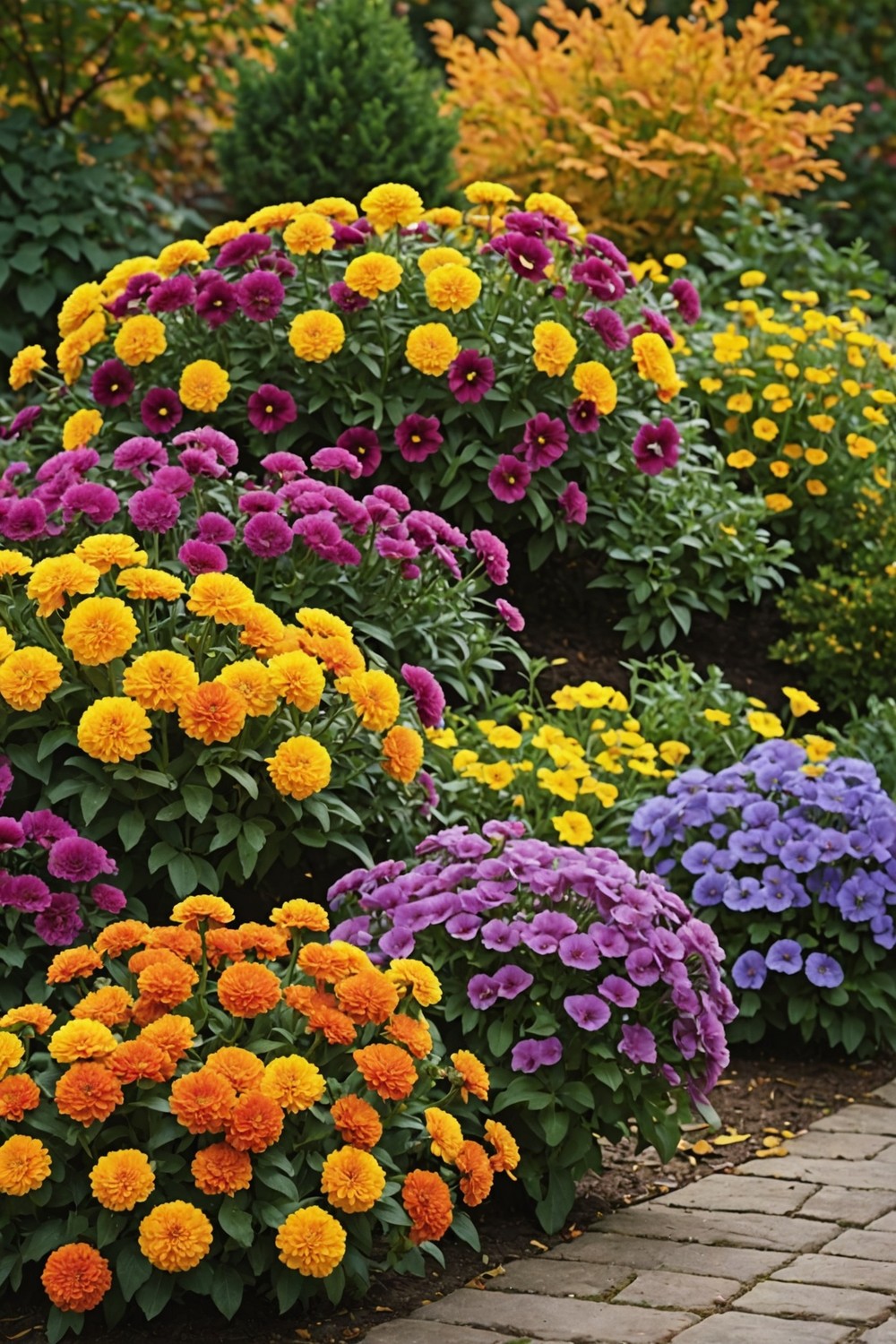
Incorporating seasonal flowers into your fall garden brings vibrant colors and textures as the days grow shorter. Opt for hardy varieties like chrysanthemums, asters, and pansies, which thrive in cooler temperatures.
These flowers not only enhance the visual appeal but also attract beneficial pollinators, creating a lively garden environment.
Mixing in late-blooming perennial plants with your annual flowers can create stunning contrasts and extend the blooming season, ensuring your garden remains a focal point well into the fall.
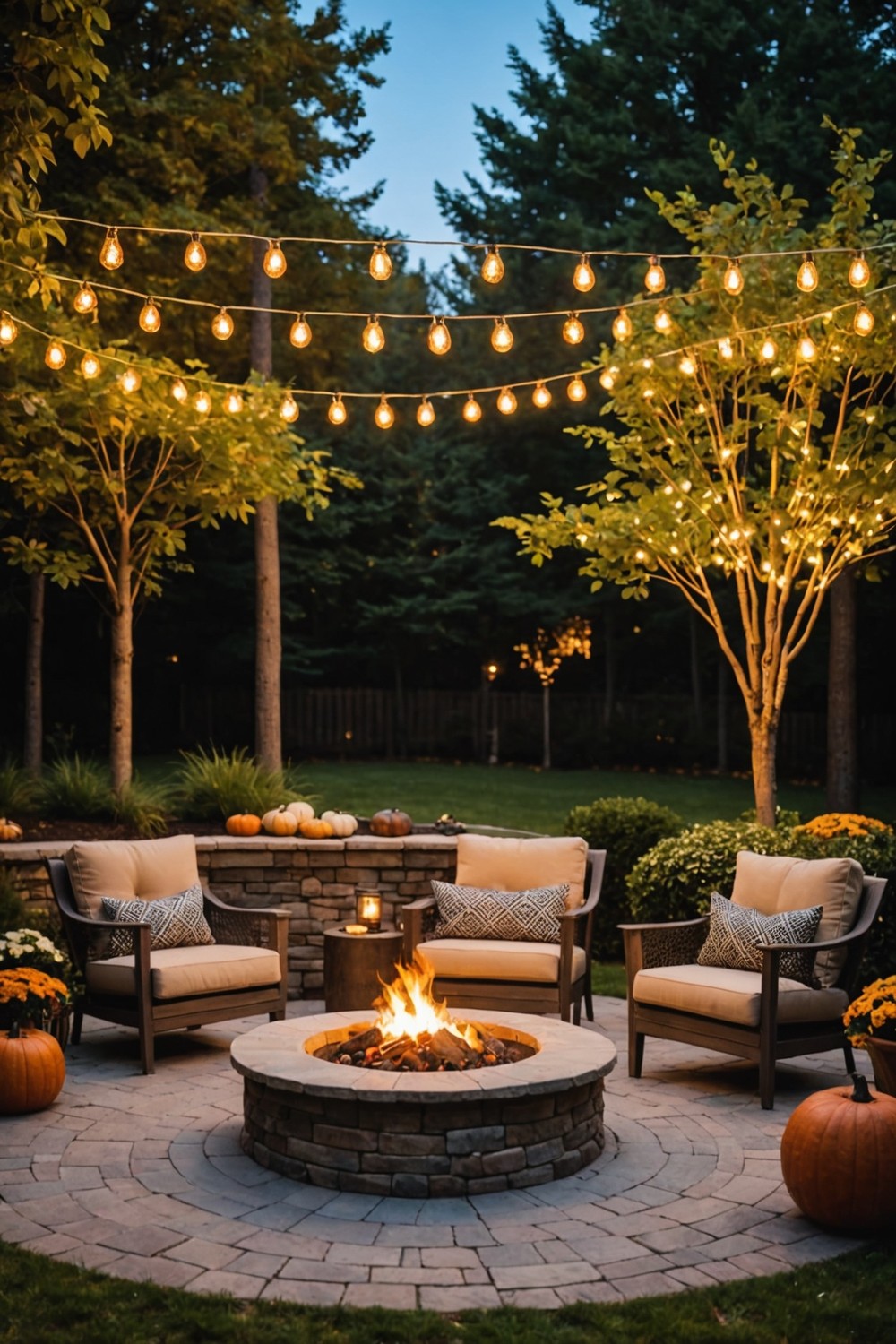
Creating a cozy fire pit area elevates your fall garden experience.
Start by choosing the right location, ideally on level ground that’s away from overhanging branches.
Incorporate comfortable seating options, such as outdoor sofas or wicker chairs, complemented by plush cushions and blankets for warmth.
Surround the fire pit with decorative stones or pavers for safety and style.
To enhance the ambiance, consider adding string lights or lanterns for a warm glow, making your space inviting long into the evening.
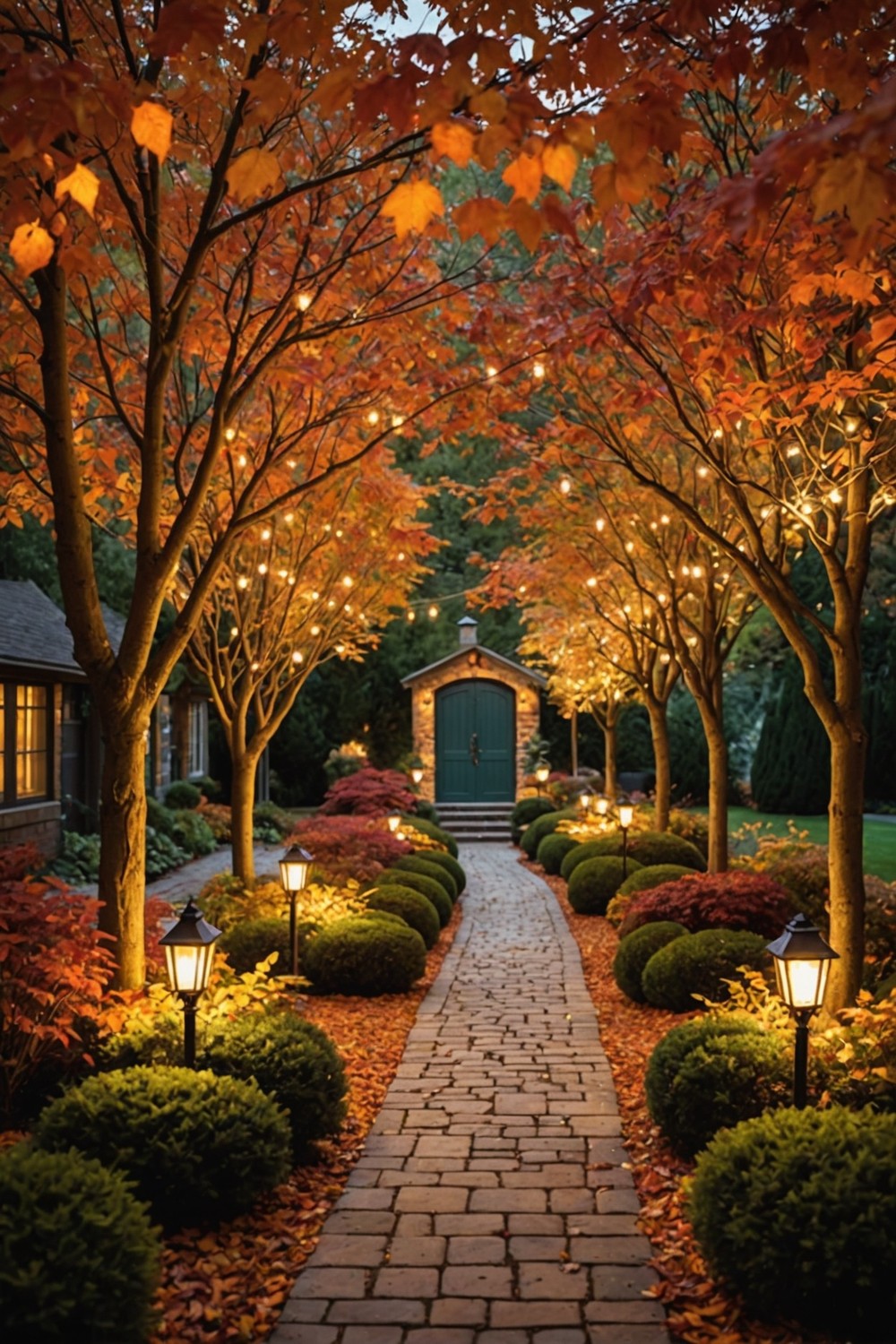
Installing garden lighting transforms your outdoor space, adding both beauty and safety.
Start by choosing fixtures that complement your garden’s style—path lights, string lights, or spotlights all create different atmospheres.
Plan the layout by identifying key features you want to highlight, such as trees or pathways.
Consider using solar-powered options for efficiency and ease of installation.
Lastly, ensure the lights are weather-resistant to withstand the fall elements, making your garden inviting even as the days grow shorter.
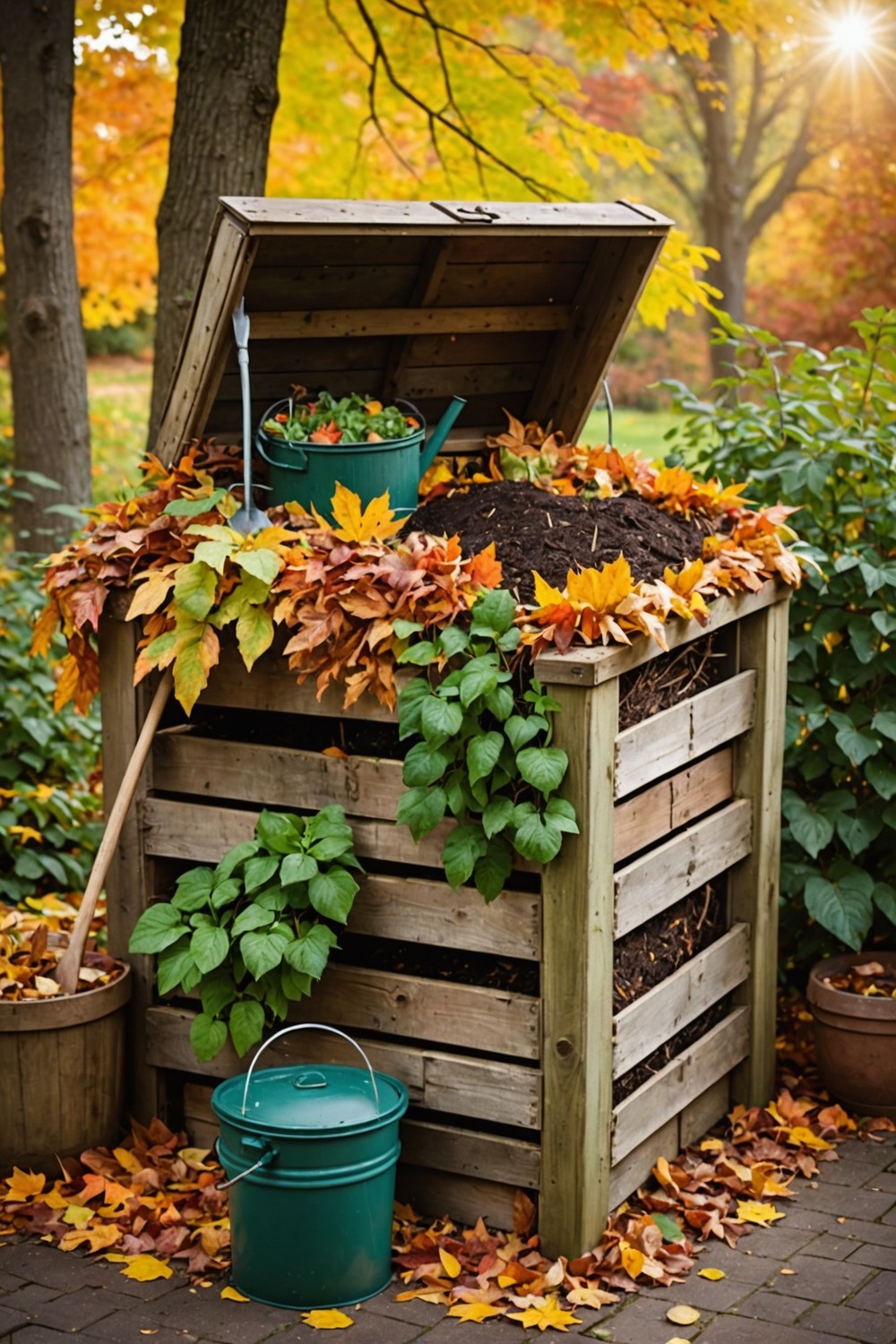
Building a compost bin is a fantastic way to turn kitchen scraps and yard waste into nutrient-rich compost for your garden. Start by selecting a location that is easily accessible but away from direct sunlight.
Gather materials like wooden pallets, wire mesh, or plastic bins to create the structure.
Make sure there’s adequate airflow by allowing gaps between materials. Layer brown (carbon-rich) and green (nitrogen-rich) materials for efficient decomposition.
Regularly turning the compost helps speed up the process, ensuring you have rich soil amendments for your fall garden!
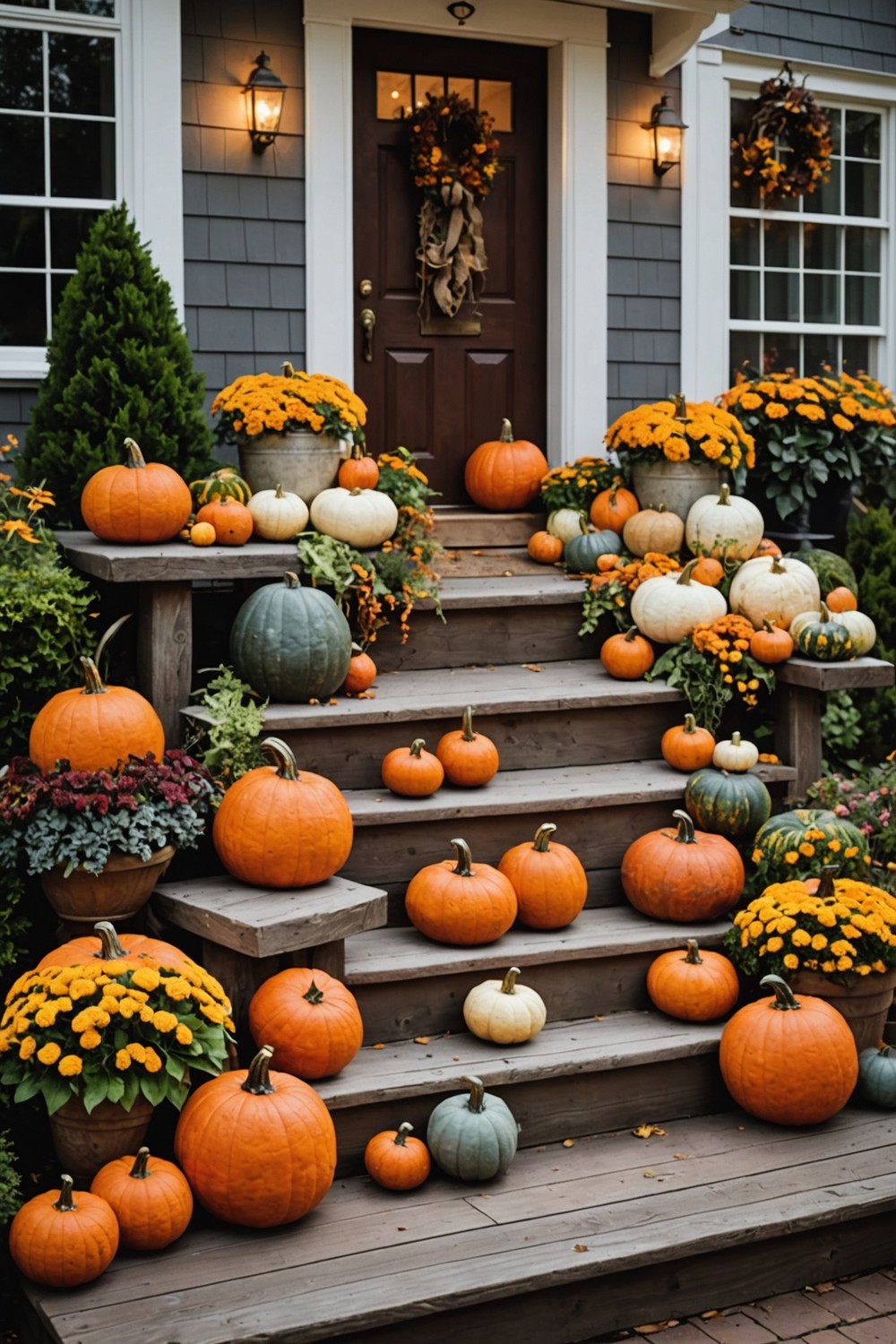
Using decorative pumpkins adds a vibrant touch to your fall garden. Choose various sizes, colors, and textures to create visual interest.
Place them on steps, arrange them in clusters on tables, or use them to enhance flowerbeds.
They can even serve as unique planters for fall flowers or small succulents. Incorporate some twinkling lights or gourds to elevate your display, making your garden a cozy gathering spot as the days grow shorter.
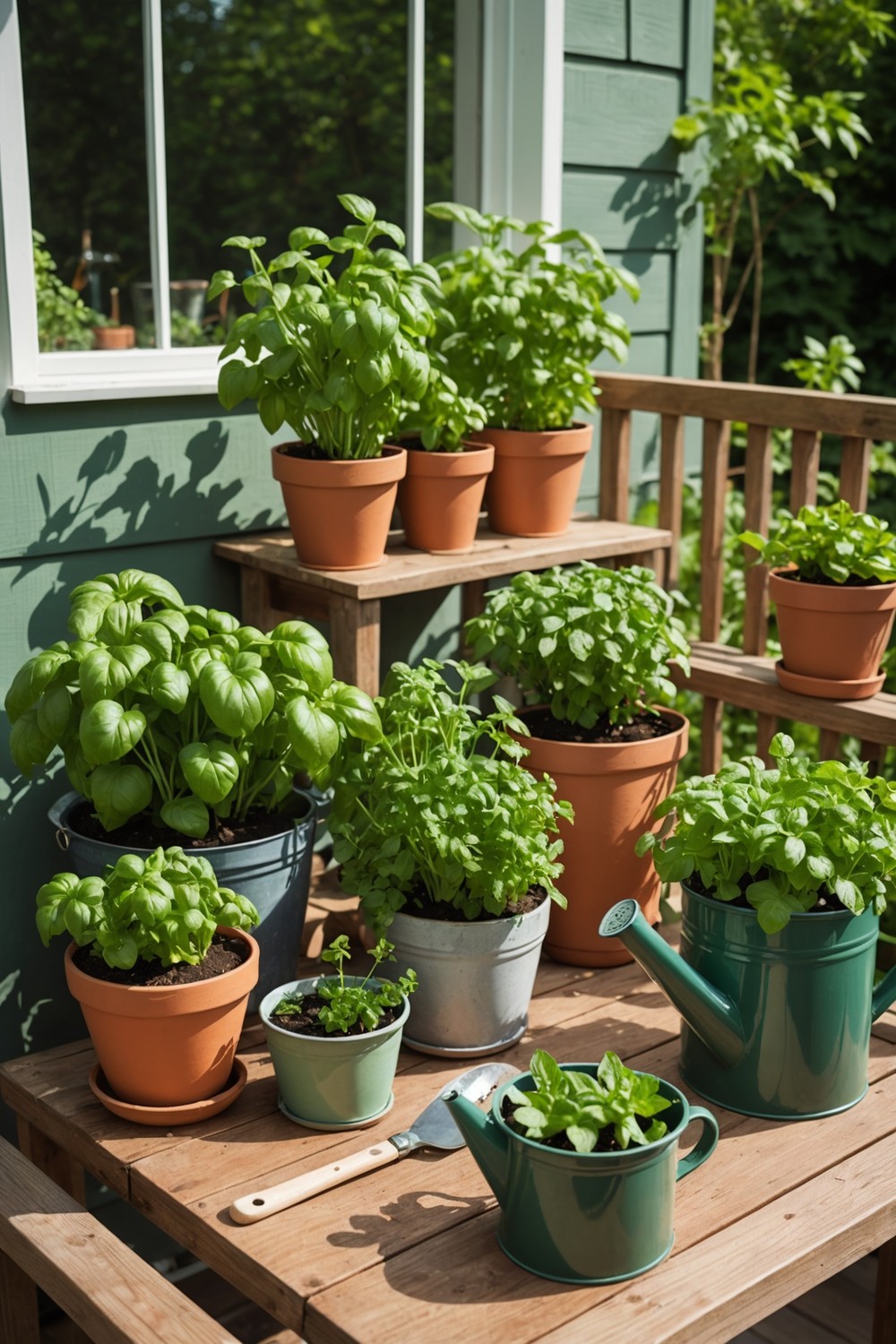
Starting a herb garden is a rewarding way to enhance your culinary experiences and bring fresh flavors to your meals. Choose a sunny spot in your yard or balcony where herbs can bask in sunlight.
Easy-to-grow varieties like basil, parsley, and mint thrive well in small spaces.
Plant them in pots to create a flexible garden that can move with the changing seasons. Regular watering and occasional pruning will keep your herbs healthy and encourage growth.
Fresh herbs are not only convenient but also add vibrant flavors to dishes all season long.
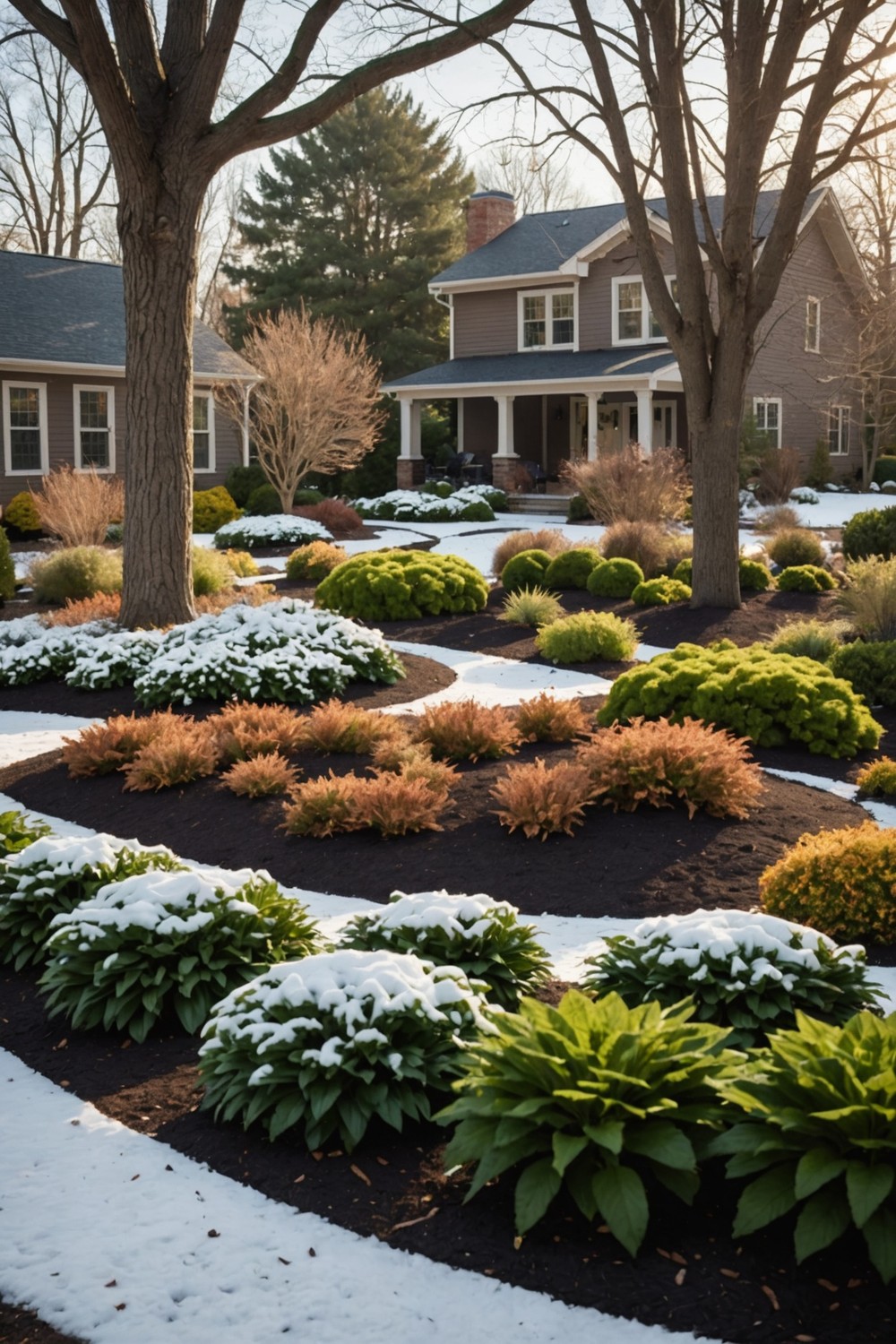
Adding mulch is an effective way to protect your garden during winter. A thick layer of mulch conserves soil moisture, regulates temperature, and prevents frost heave in your plants.
Organic options like shredded leaves, wood chips, or straw not only benefit the soil as they break down but also provide insulation against harsh winter conditions.
Make sure to apply mulch around the base of plants and trees, but keep it a few inches away from their stems to avoid rot. This preparation ensures your garden remains healthy and ready for spring growth.
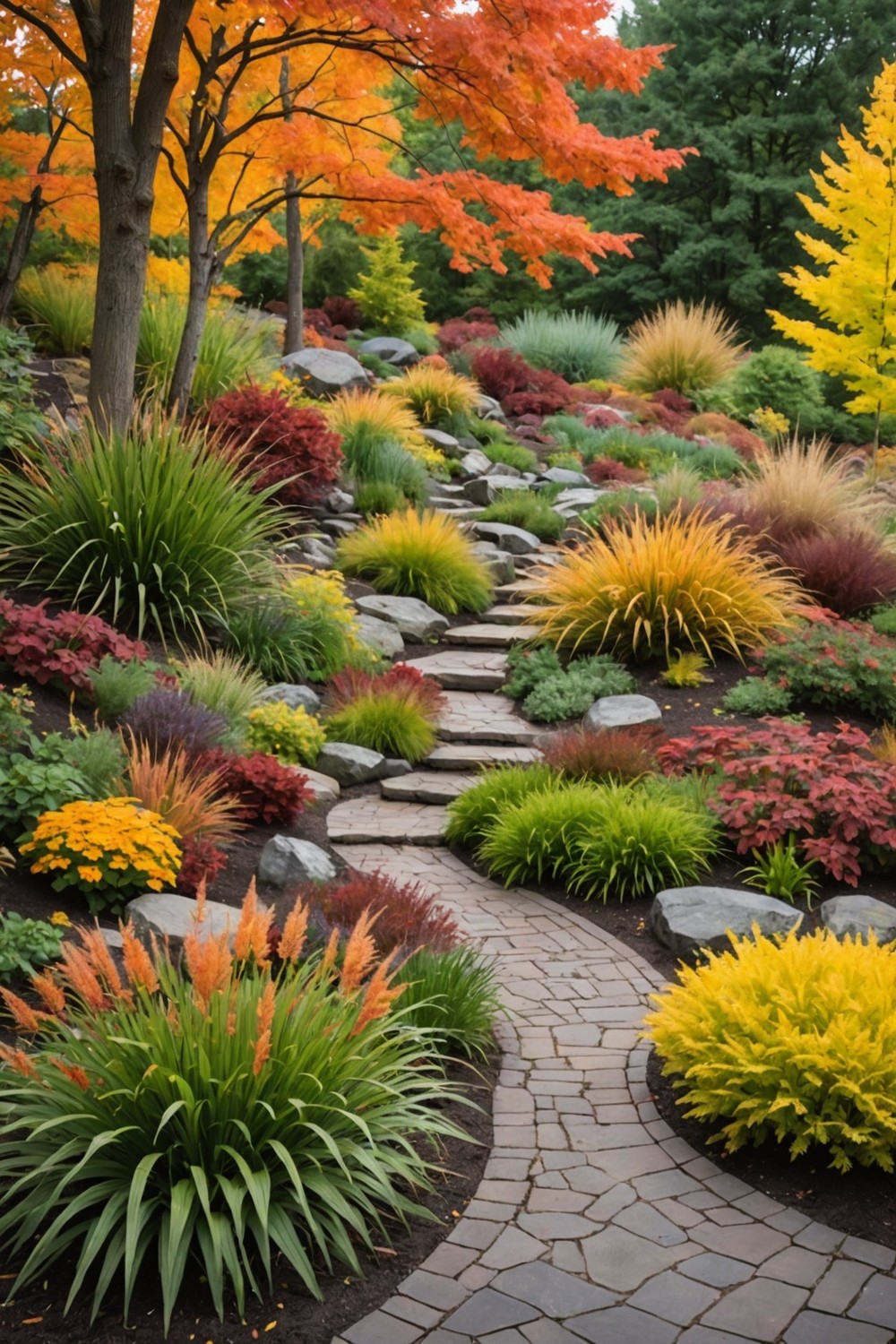
Implementing a rain garden is an excellent way to enhance your fall garden while managing stormwater runoff effectively.
This type of garden uses native plants to absorb rainwater, reducing flooding and erosion while promoting local biodiversity.
Choose a low-lying area to install it, and consider using a mix of flowering plants, grasses, and shrubs to create visual interest.
Not only does it provide a beautiful landscape feature, but it also plays a vital role in water conservation and environmental health.
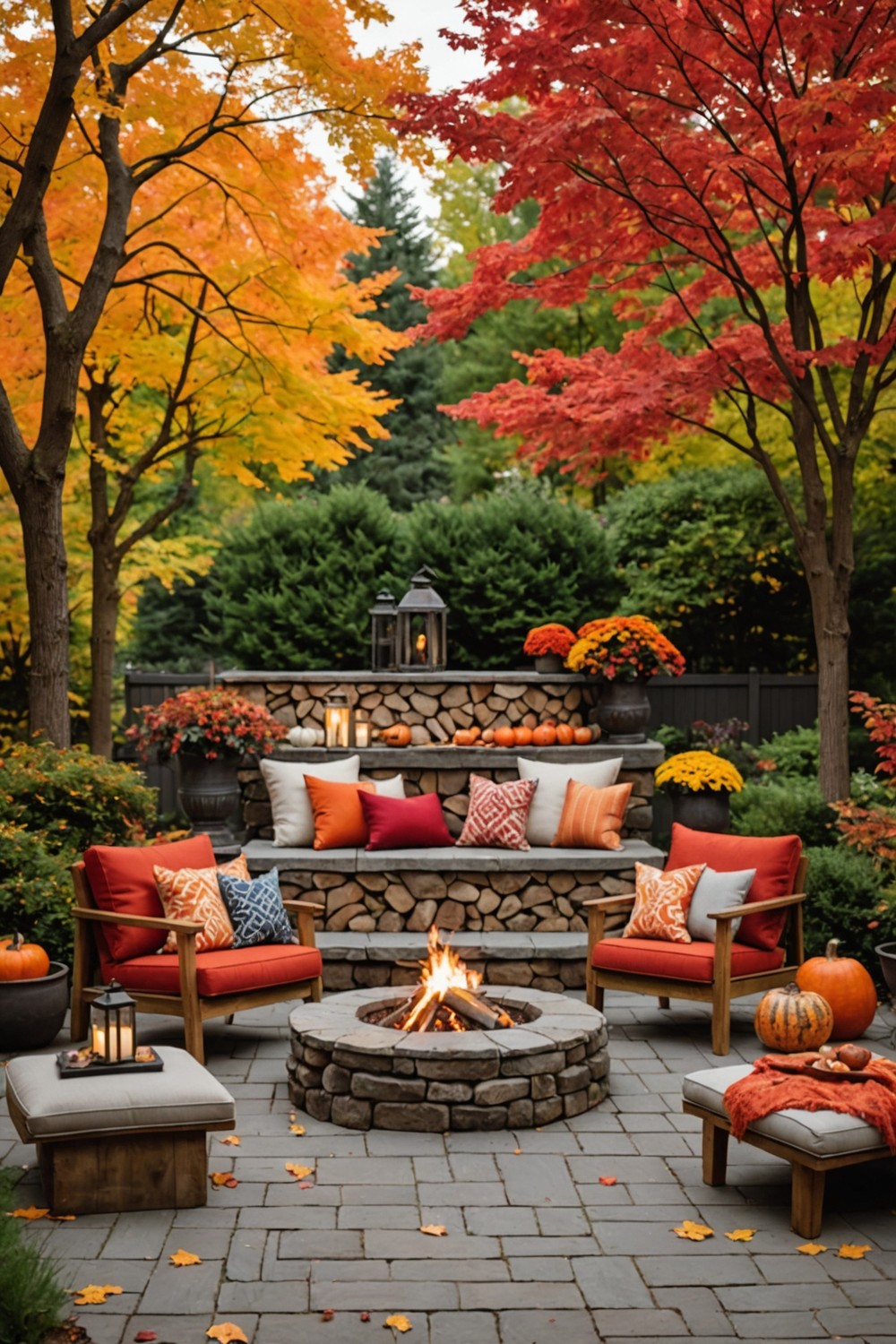
Creating an outdoor seating area enhances your garden, providing a perfect spot for relaxation and enjoyment. Choose comfortable furniture that complements your garden’s style, such as rustic wooden benches or sleek modern chairs.
Incorporating cushions and throws can add a cozy touch.
Consider adding a fire pit or outdoor heater for warmth on chilly fall evenings. Surround the seating with colorful plants and decorative lanterns to create an inviting atmosphere that beckons you to unwind and take in the beauty of the season.
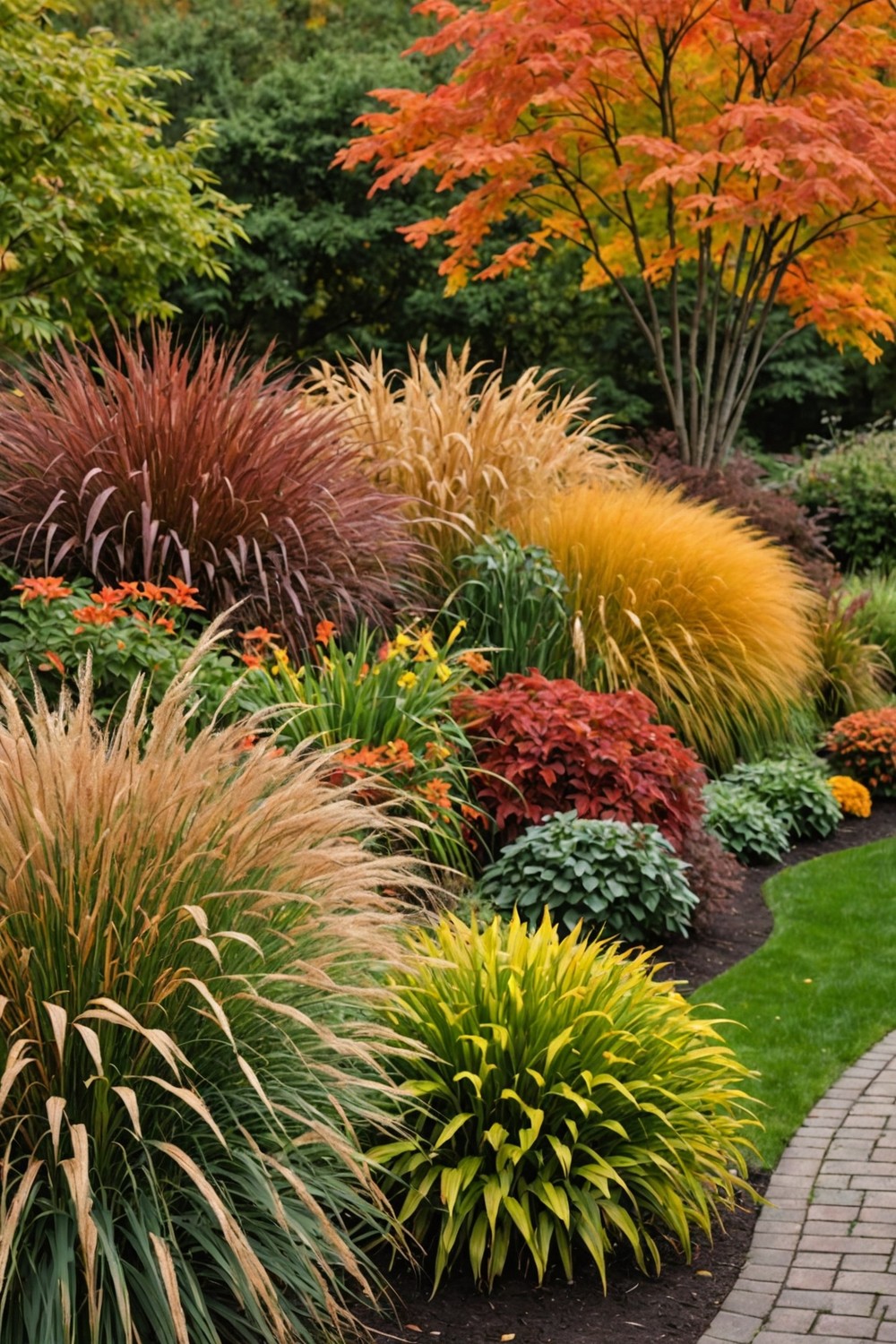
Ornamental grasses add texture, movement, and a splash of color to your fall garden. Their unique shapes and graceful forms create an attractive contrast against autumn’s vibrant foliage.
Planting varieties like Miscanthus or Panicum can elevate the visual appeal of garden beds, borders, or even containers.
As the wind rustles through them, they also provide a gentle sound that enhances the serene atmosphere of your outdoor space during the crisp fall days.
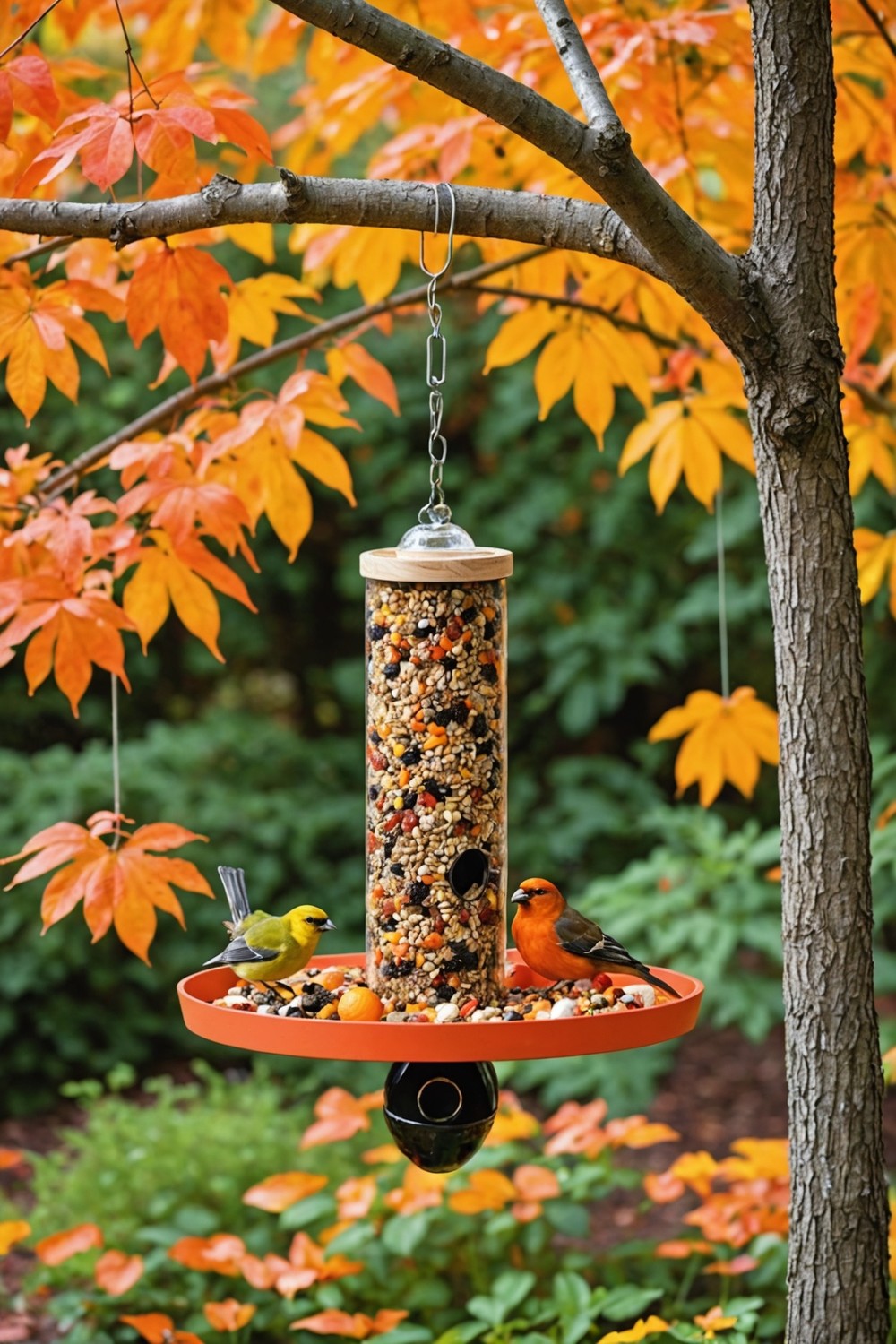
Crafting a DIY bird feeder is a fun and rewarding project that can enhance your garden while attracting beautiful birds.
Begin with materials like a wooden board, a plastic bottle, or even a coconut shell.
Cut openings for the birds and secure a perch if desired.
Fill it with birdseed, and hang it from a tree or a sturdy hook.
Personalize it with paint or decorations to add charm and blend it seamlessly into your fall garden.
Regularly refilling the feeder will ensure your feathered friends keep coming back!
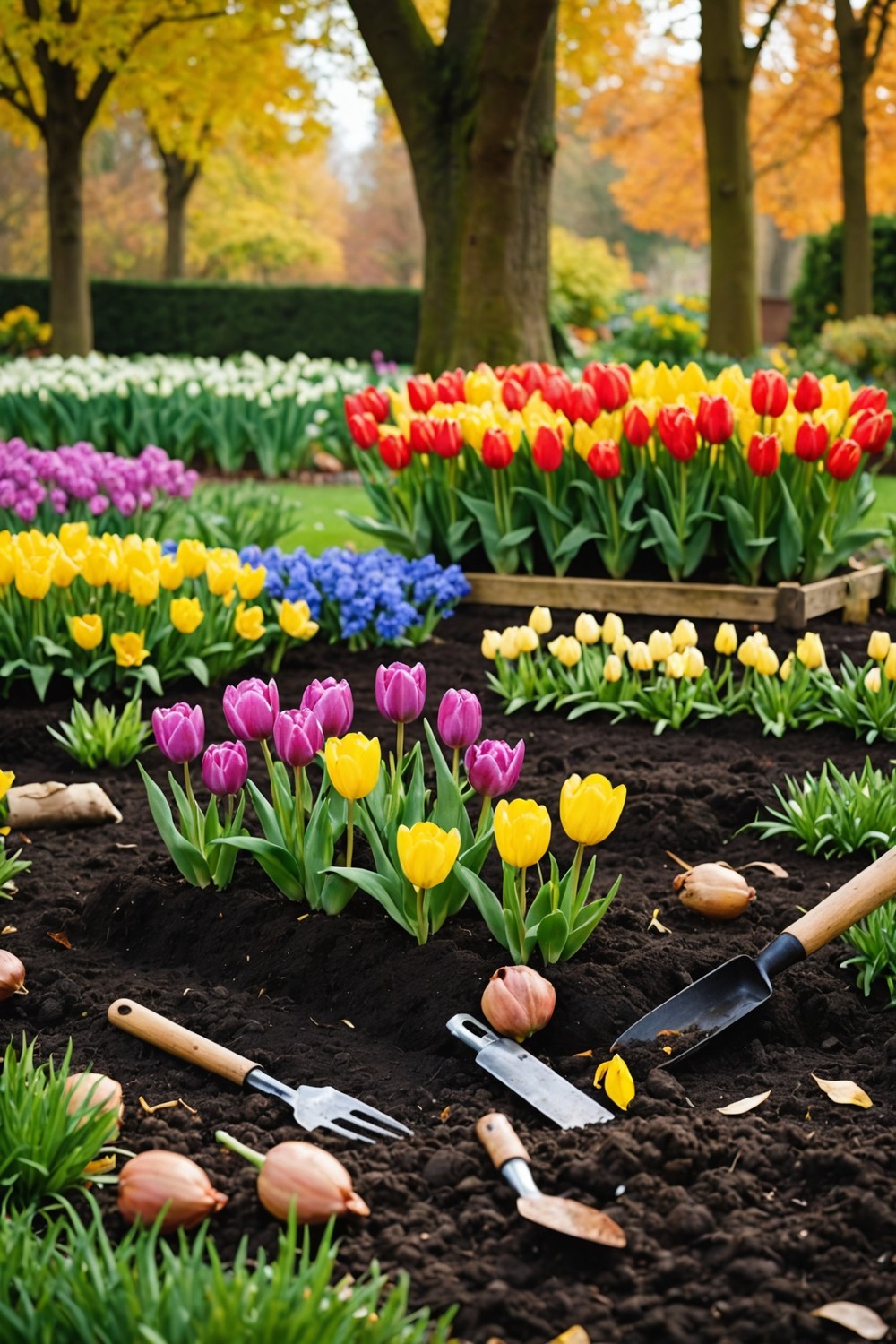
Planning for spring bulbs starts with selecting the right varieties that thrive in your climate.
Choose from popular options like tulips, daffodils, and hyacinths.
Prepare the garden by ensuring the soil is well-drained and enriched with compost.
Aim to plant bulbs in groups for a stunning visual impact.
Timing is everything; ideally, plant them in the fall before the ground freezes to give them a strong start come springtime.
Consider the bloom times to enjoy a continuous display throughout the season.
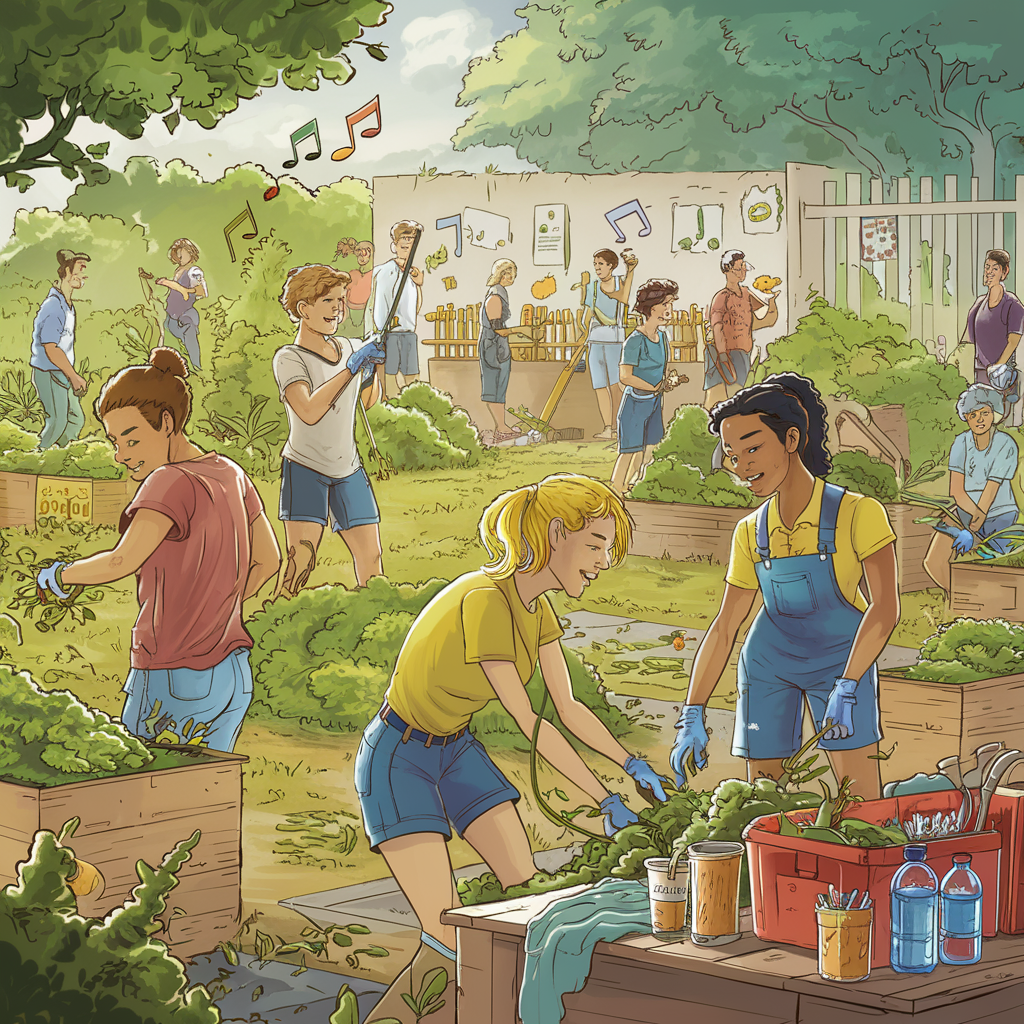
Organizing a Garden Cleanup Day can rejuvenate your outdoor space and foster community spirit.
Start by selecting a date and creating a schedule that outlines tasks such as weeding, pruning, and debris removal.
Gather volunteers by spreading the word through local groups or social media.
Ensure everyone has the right tools and supplies, and consider providing refreshments to keep morale high.
Creating a festive atmosphere with music can make the cleanup more enjoyable for everyone involved.
Transforming your garden together can lead to beautiful results!
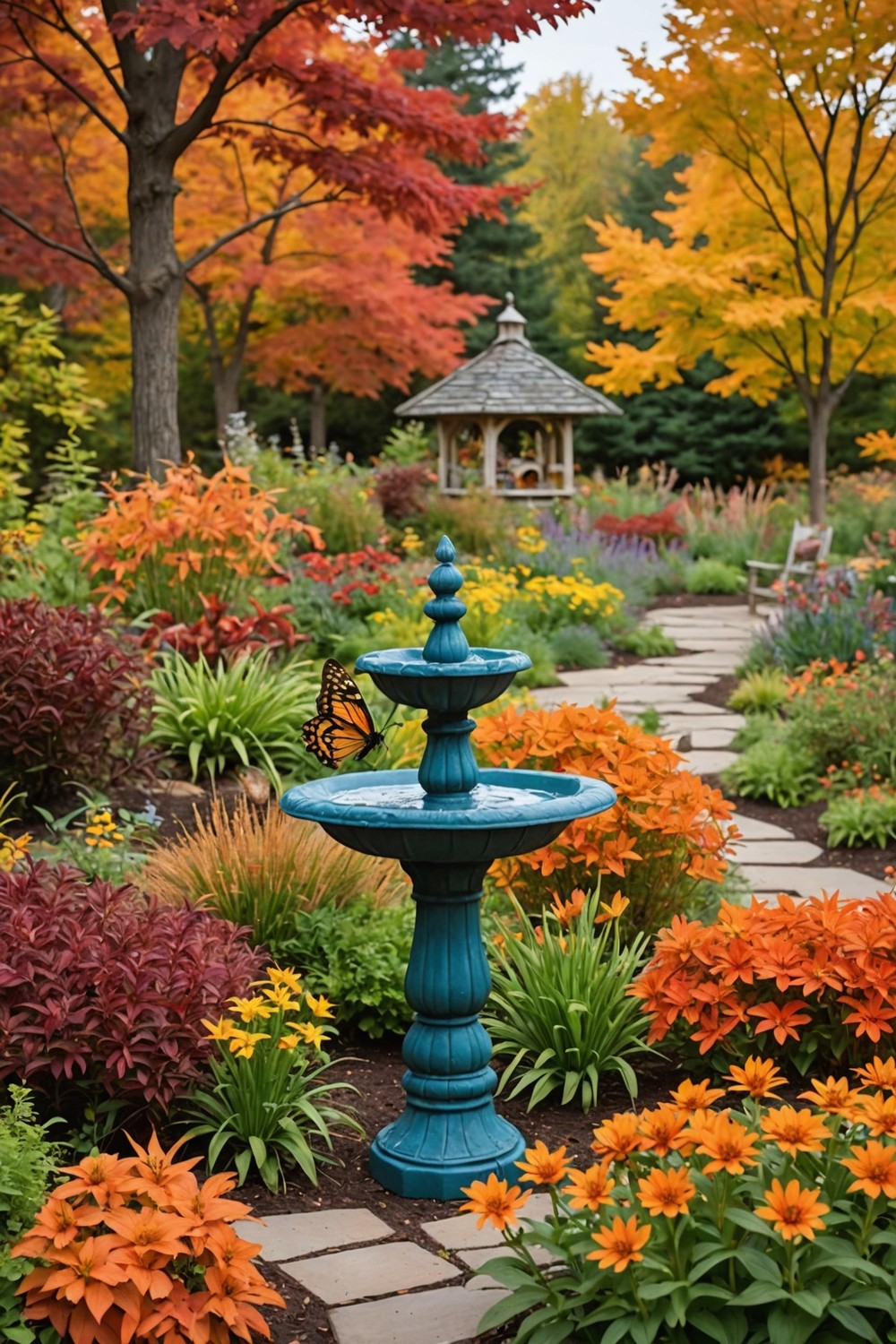
Creating a wildlife habitat in your garden is a fantastic way to support local ecology while enhancing your outdoor space. Incorporate native plants that provide food and shelter for birds, butterflies, and bees.
Adding features like birdhouses, water sources, and brush piles can further attract wildlife.
Ensuring safe nesting areas and minimizing chemical use can encourage a thriving ecosystem, making your garden a lively and essential refuge for animals all year round.
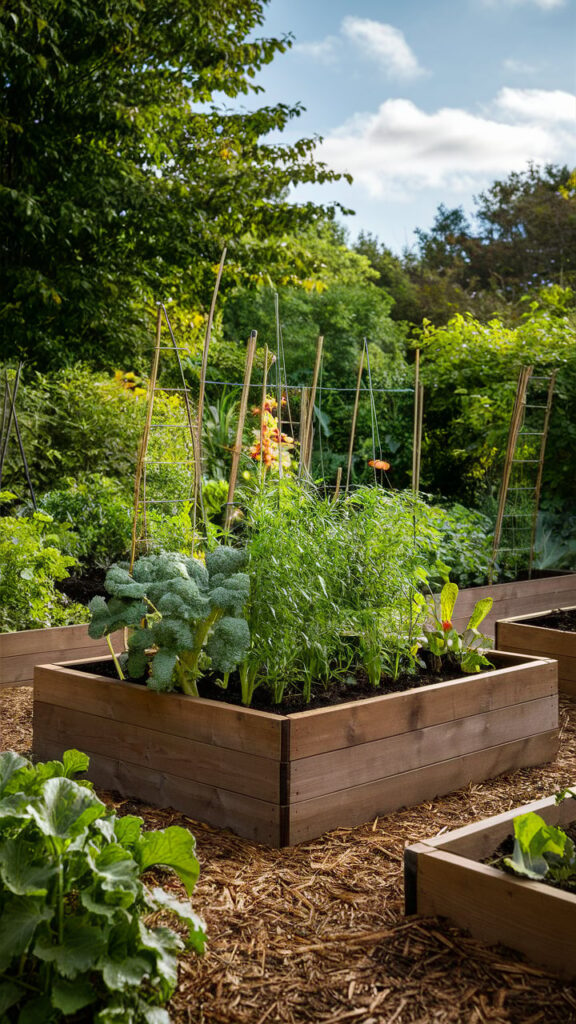
Raised beds offer a fantastic way to enhance your fall gardening experience. They provide better drainage and soil quality, which is especially beneficial during the cooler months.
The warmer soil temperatures in raised beds allow for a longer growing season, enabling you to plant fall crops like kale, broccoli, and carrots that thrive in cooler weather.
Additionally, working at raised heights reduces strain on your back, making gardening more enjoyable. You can easily control the soil composition, tailoring it specifically for what you plan to grow.
Whether you choose wooden, metal, or stone options, raised beds can also add a stylish touch to your garden layout.
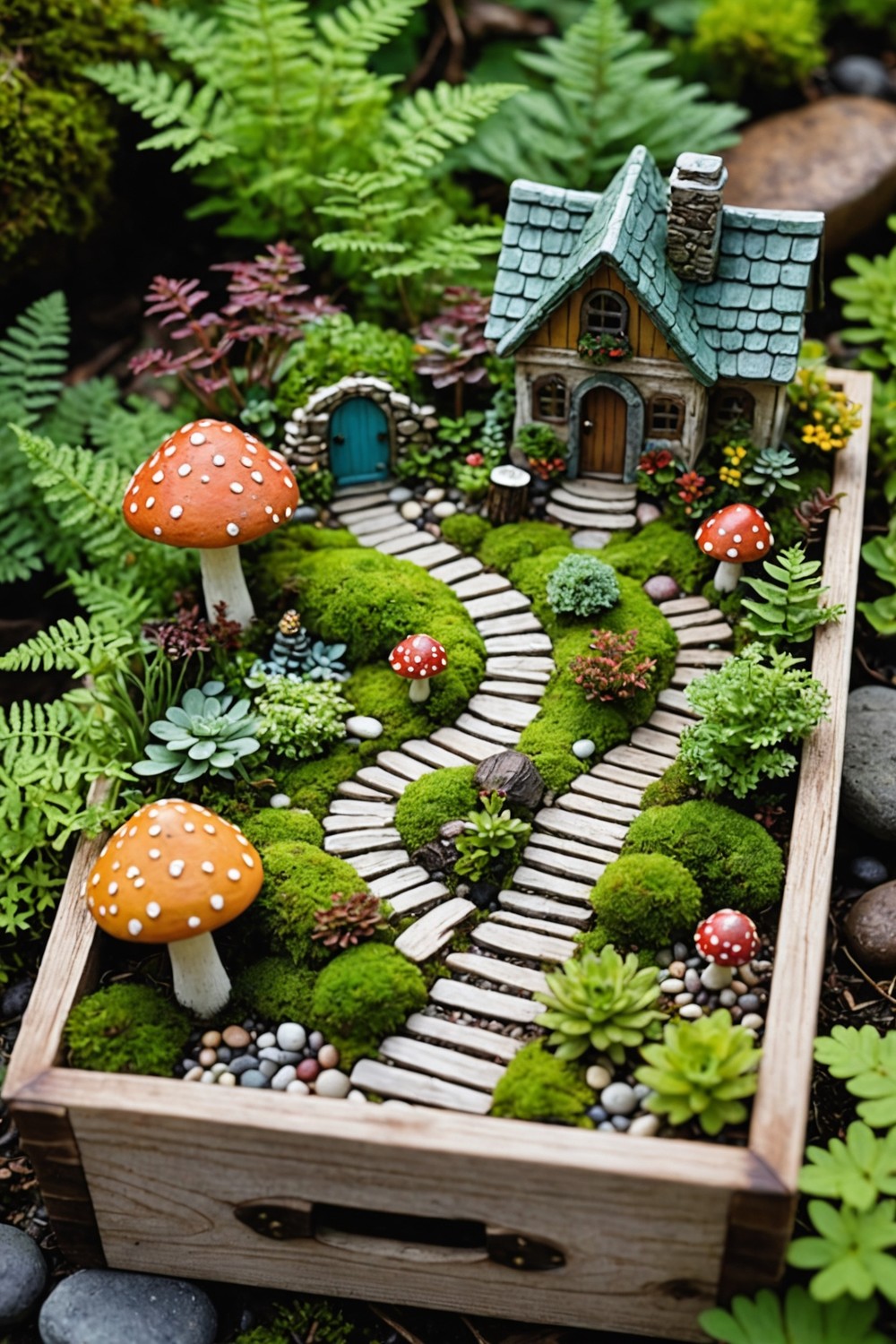
Designing a fairy garden is all about creating a magical, miniature landscape that sparks the imagination. Start with a charming container like a pot or wooden box, then layer in soil, gravel, and moss to create a natural look.
Choose little plants with varying heights and colors, such as thyme, sedum, or ferns, for a whimsical feel.
Add small decorations like tiny houses, fairy figurines, or toadstools to enhance the enchanting atmosphere. Don’t forget to incorporate pathways using pebbles or colored stones to guide tiny visitors through your garden.
With a touch of creativity, your fairy garden can become a delightful space that invites wonder throughout the fall season.
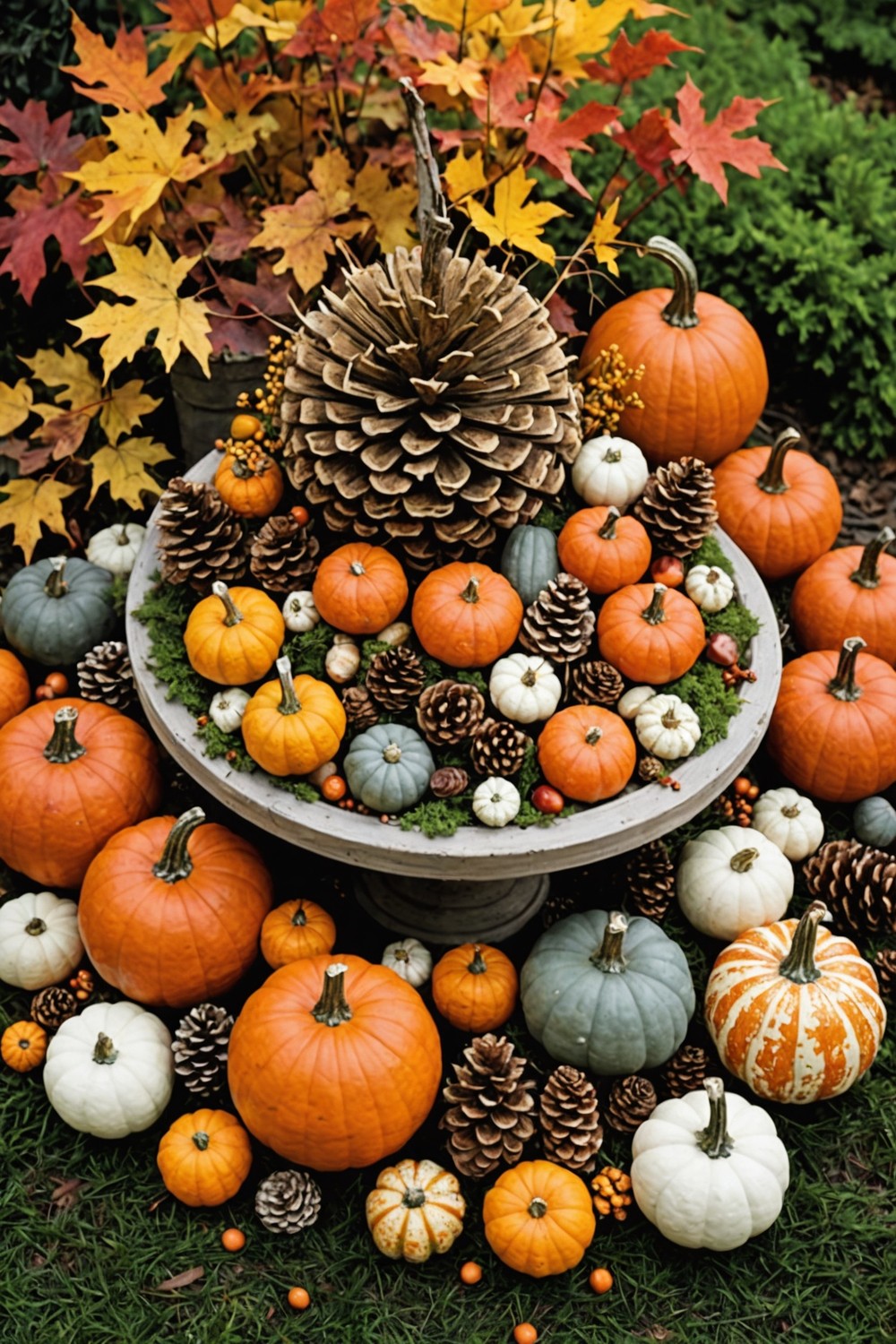
Using natural elements for decor can enhance the cozy, earthy vibe of your fall garden. Incorporate seasonal foliage, such as colorful leaves or branches, to create striking centerpieces.
Invest in decorative pumpkins and gourds, which add color and align beautifully with fall themes.
Consider arranging pinecones, acorns, or stones in unique ways to bring texture and natural charm. These simple additions foster a warm atmosphere that resonates with the beauty of autumn.
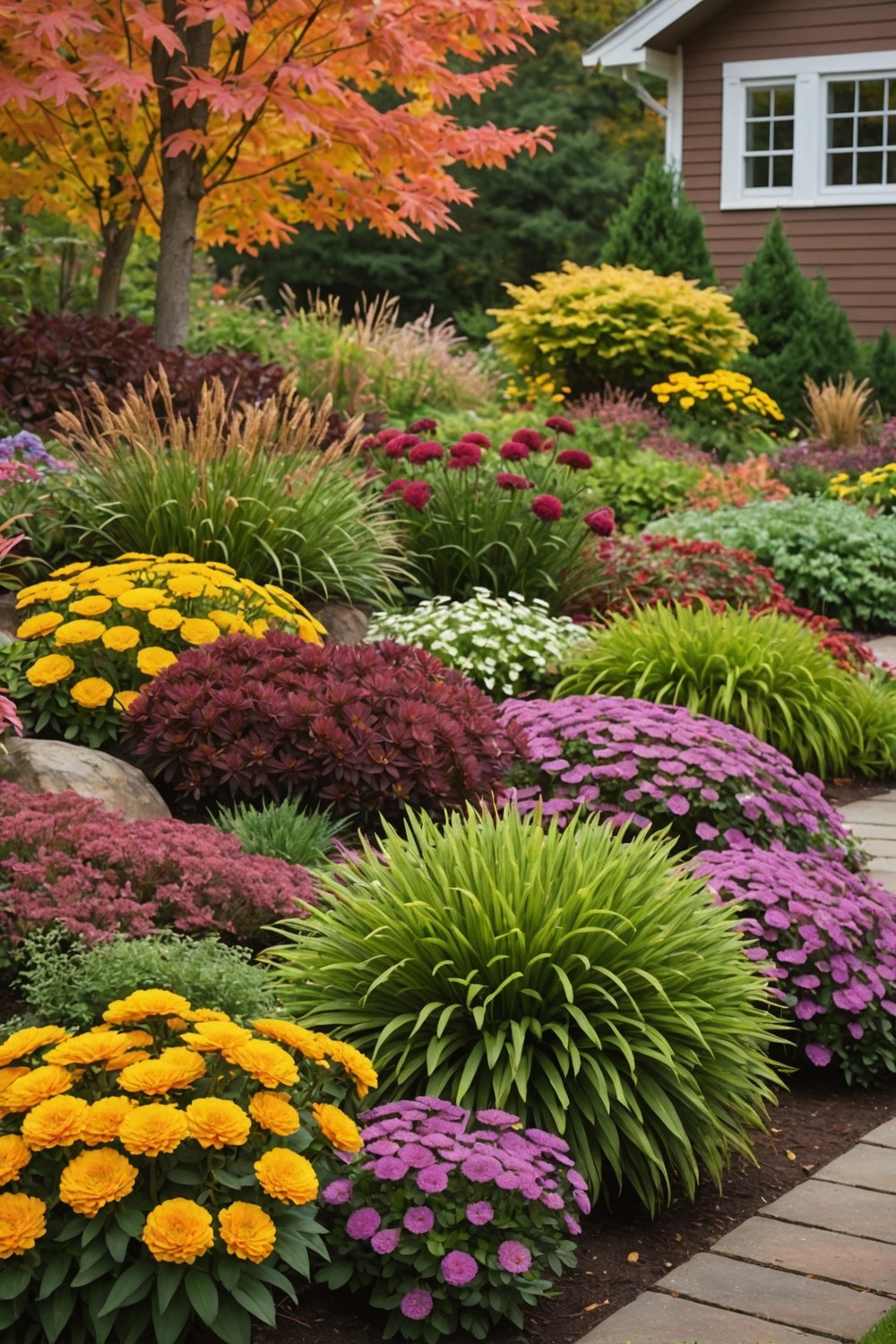
Planting perennials for fall color adds vibrant hues to the garden as the season transitions.
Selecting varieties like asters, sedums, and ornamental grasses can enhance visual interest and provide lasting blooms.
Ensure these plants are suited to your climate and soil type to thrive beautifully into autumn.
Regular maintenance, such as deadheading and proper watering, helps to maximize their color potential, turning your garden into a stunning fall display.
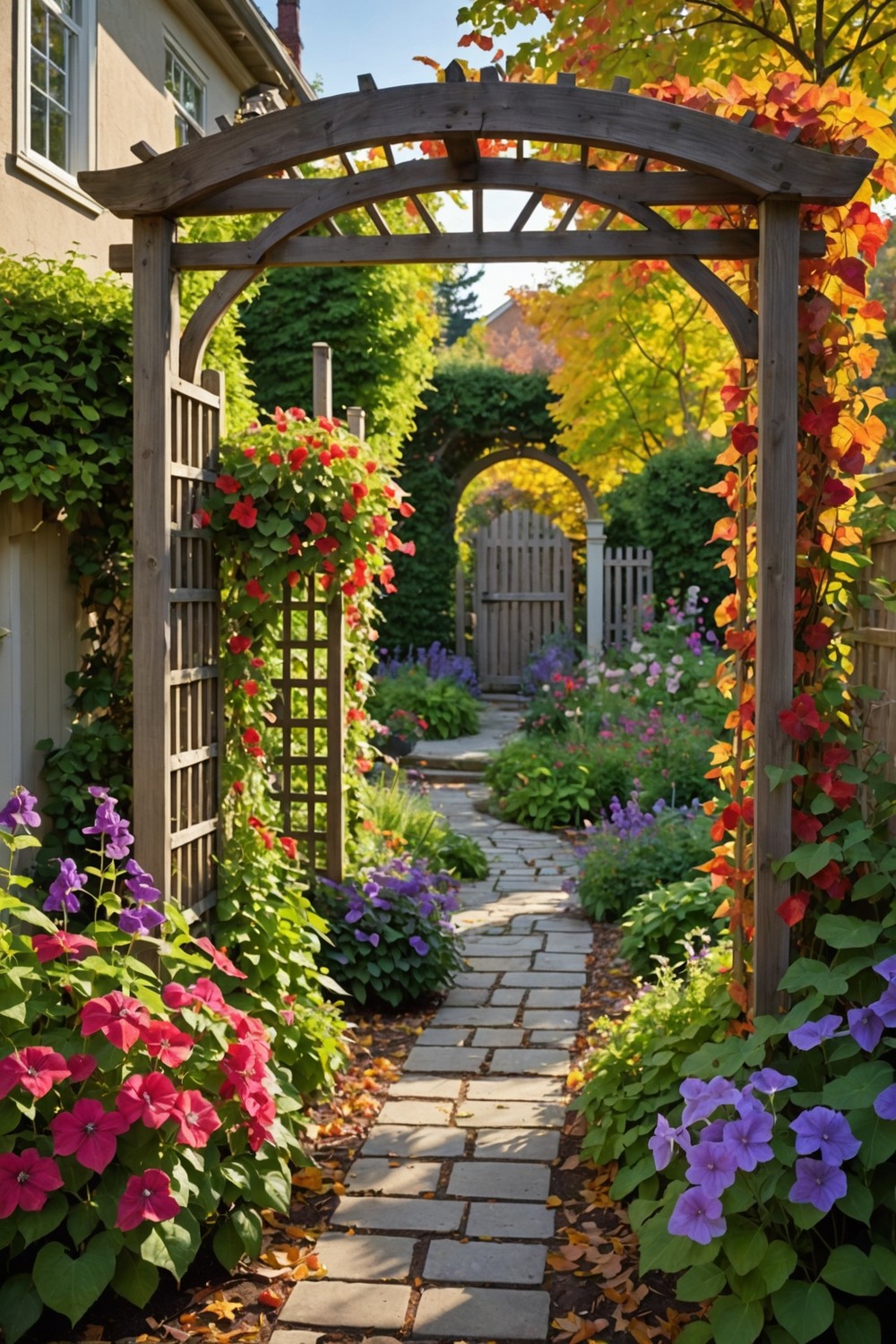
Installing a trellis or archway enhances your garden’s aesthetics while providing support for climbing plants.
Choose a sturdy material, such as wood or metal, and select a location that receives ample sunlight.
As you plant vines like clematis or sweet peas, they will naturally embrace the structure, adding vertical interest and charm.
This not only creates a beautiful focal point but also maximizes your garden space, making it feel more expansive and inviting.
